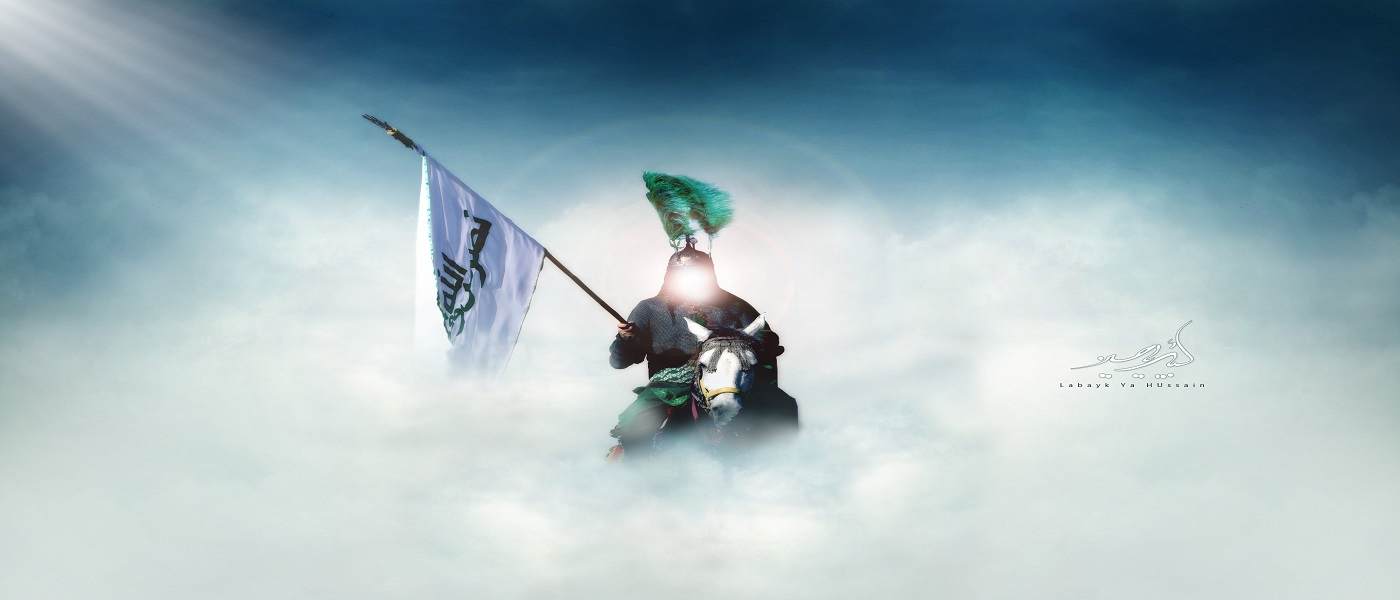
Lady Zainab and the Nurses' Day in the Islamic Calendar
Lady Zainab (SA) is an icon of purity, bravery, and steadfastness.Though she lived 14 centuries ago, her personality and teachings continue to guide men and women till now/to this day. She is the fruit of the tree of Prophethood nourished by Imamat. Lady Zainab (SA), the daughter of Imam Ali (As), has several attributes and titles associated with her, such as Al-Aqilah the noblewoman, Al-Aalimah or the knowledgeable woman and Aminatu-al-Allah, the faithful of Allah (SWT).
She belonged to a holy lineage; her mother was Lady Fatimah al-Zahra (SA), - the daughter of Prophet Muhammad (PBUH & HP) - and was actually a reflection of her father in the worship of Allah, piety, self-discipline, virtues, clemency, veneration, and the other features of perfection thus her father named her the chief of the women of the worlds and such a great mother nurtured Lady Zainab.
Lady Zainab’s life
Lady Zainab’s father, Imam Ali (AS) honoured as the representative, successor and heir to Prophet Muhammad (PBUH&HP) was given remarkable titles like ‘the chief of the prophets’ successors’, ‘leader of the pious ones’ and ‘the head of the worshippers’ by Prophet Muhammad (PBUH&HP) himself. With innumerable merits and unrivalled sacrifices for Islam he was recognised and reputed as the most knowledgeable, the most magnanimous, the most generous, the most abstinent, the most trustworthy, the best worshipper, the most faithful, and above all, the most pious and the bravest of all Muslims. In other words, he was the best Muslim after the Holy Prophet Muhammad. (PBUH&HP).

Lady Zainab (SA), hence, was born into the most pious family and raised under the care of the best human beings therefore she learnt many things that composed her perfect personality from the etiquettes of her parents and her brothers. Since early life, she was marvellous in her intellect and wisdom and had learnt the Holy Quran by heart as well as the Prophet’s sayings regarding Islamic laws, rules of education and principles of ethics.
Throughout her life she faced one tribulation after another, but emerged strong and victorious in all her trials. She then witnessed the martyrdom of her mother, father and brothers - Imam Hasan and Imam Hussain (AS) - and in Karbala where all male members of her family were brutally martyred including her own sons Awn and Muhammad, and all the women folk were taken into captivity. But despite all these vicissitudes she always remained a source of strength and a caretaker for the survivors of the tragedy of Karbala and the flagbearer of the message of this great event. She is the epitome of selflessness and perseverance, the embodiment of patience and courage in the face of oppressors and the personification of knowledge and purity. Despite all the hardships she endured in Karbala she decided to preserve and propagate the true message of Karbala While her bravery, eloquence, courage, asceticism, chastity and caring nature towards the survivors of the tragedy of Karbala has been and still is unparalleled in history.
The Holy Prophet Muhammad (PBUH&HP) says, “Whoever tries to fulfil the needs of a sick person, whether they fulfil it or not, they will be cleansed of their sins like the day they were born.”[1] In another tradition, he has said, “Whoever looks after the sick for an entire day, Allah (SWT) will raise them up with Prophet Abraham.”[2] If we would take only these two traditions into consideration, we can understand the greatness of Lady Zainab (SA) who cared for Imam Sajjad (AS) and all the children and women who had got sick or were injured after what happened in Karbala. Therefore, taking inspiration from her, the 5th of Jamadi-Al-Awwal which is her birthday is celebrated as the Nurses’ Day in the Islamic calendar.
References:
- Kitab Man La Yahzarul Faqih, V.4, Pg.16
- Sawab ul Aamal, Pg. 341
- https://www.al-islam.org/lady-zaynab-badr-shahin/life-lady-zaynab
- https://www.al-islam.org/victory-truth-life-zaynab-bint-ali-muna-haeri-bilgrami
Share This Article

What Does Islam Say about Prejudice?
When my nephew was about two years old, he experienced his first meet up with a cockroach. My sister and I found him sitting very close to a cockroach, looking at it, smiling and enjoying his discovery. As soon as we saw the cockroach, we started screaming out of fear of the cockroach. In a way that the poor little kid ran away and started crying. From then on, whenever he saw a cockroach, his first reaction towards the poor insect was to start screaming and running away.
We, unwantedly, passed on our fear and hatred of the insect to that little kid. This hatred was shaped in us when we were kids and is passed on to next generations. Hostile actions are being shaped against cockroaches. Different poisons are made to destroy them. And still, they are the biggest enemies of people of some nation. The same story exists with British people and their spider enemies.
We never even start asking ourselves, if we can have a different attitude towards these insects. In our understanding, they are dirty, aggravating creatures that should be destroyed. Yet, it has happened to me to watch some well-made documentary films about insects. And think to myself why I am so ignorant and hostile towards these beautiful creatures of God.
Prejudice and Discrimination
Prejudice, as described in Merriam Webster dictionary, is a “preconceived judgment or opinion; an irrational attitude of hostility directed against an individual, a group, a race, or their supposed characteristics.” [1] Prejudice is usually based on ignorance. For example, using the following phrases: ‘all men, all women, all Christians, all Muslims, all uneducated people, all youths, all poor people, all rich people, all Americans, all Arabs, etc.’ are signs of having prejudice toward a specific gender, religion, social level, or nationality.
Prophet Muhammad (PBUH&HP) says: “Avoid prejudice, as it begins with ignorance and ends up in regression.” [2]
In this article, we are going to analyze prejudice in Islam. And find out how much the definition of Merriam Webster dictionary is compatible with Islam’s view towards prejudice.
What Leads to Prejudice in Islam?
Imam Ali (AS) states that one of the main reasons for prejudice is “ignorance”. He explains that “As for Satan, he felt proud over Adam because of his origin and taunted him about his creation since he said, "I am of fire while you are of clay." And in the same way “the rich among the prosperous communities have been feeling vanity because of their riches, as (Allah) said: And said they: "We are more (than you) in wealth and in children, and we shall not be chastised." (Qur'an, 34:35)” [3]
In the Arabic text, the word that is used for “vanity” is Al-asbiyyah and Al-Lijajah, which means prejudice in Islam. Indeed, most of the times it is vanity and pride that makes people think they are better than others. As a result, they classify people and discriminate between different groups of people.
Indecent Prejudices
Prejudice in the following cases is blamed according to Islamic teachings:
1. Race:
“Among His (Allah) signs is the creation of the heavens and the earth, and the difference of your languages and colors. There are indeed signs in that for those who know.” (30:22)
2. Social Class:
“Do not marry idolatresses until they embrace faith. A faithful slave girl is better than an idolatress, though she should impress you. And do not marry [your daughters] to idolaters until they embrace faith. A faithful slave is better than an idolater, though he should impress you.” (2: 221)
This verse emphasizes on the fact that the only thing that elevates people in the eyes of God and should be noticed in human classification is one’s faith and wariness of God. “Indeed the noblest of you in the sight of Allah is the most Godwary among you.” (49:13): unlike many people who may choose their spouse based on appearance, wealth, education, family lineage, etc.
3.Gender and Nationality:
“O mankind! Indeed, We created you from a male and a female and made you nations and tribes that you may identify yourselves with one another. Indeed the noblest of you in the sight of Allah is the most Godwary among you. Indeed Allah is all-knowing, all-aware.” (49: 13)
Do not Humiliate Each other!
As it is clear in the above verses, that differences in nationality, race, color, or social class should not make a group of people feel that they are superior to others and that they have the right to insult or assault them.
Since prejudice is followed by mocking, insulting and humiliating others, Allah clearly detains people of such acts; “O you who have faith! Let not any people ridicule another people: it may be that they are better than they are, nor let women [ridicule] women: it may be that they are better than they are. And do not defame one another, nor insult one another by [calling] nicknames. How evil are profane names subsequent to faith! As for those who are not penitent [of their past conduct]—such are the wrongdoers.” (49: 11) and He emphasizes that “Indeed the noblest of you in the sight of Allah is the most Godwary among you.” (49:13)
Is Prejudice in Islam Always a Negative Attitude?
From definitions that we usually read about prejudice, we may think that prejudice in Islam is always an indecent attitude. But, in Islamic teachings, prejudice is not always a negative manner. Rather, in some cases, it is known to be admirable.
As Imam Ali (AS) points out, people should have prejudice for “good qualities and in praise-worthy habits like the protection of the neighbor, the fulfillment of agreements, obedience to the virtuous, opposition to the haughty, extending generosity to others, abstention from rebellion, keeping aloof from blood-shed, doing justice to people, suppressing anger and avoiding trouble on the earth.” [4]
Conclusion
With what we have discussed so far, we realize that prejudice comes from ignorance. And every one of us may have a negative prejudice against some people. Simply because we do not bother to gain more knowledge about other people, other religions, other cultures, etc. If we try to know other humans better and try to put ourselves in their conditions and empathize with them, and do not judge them based on what we’ve heard about them, but expand our knowledge by the sufficient studies, then there is a chance that we can help each other in the way of growth and improvement.
References:
- prejudice
- Mizan al-Hikmah, vol. 4, p. 2770
- Nahjul Balagha, sermon 192:
- ibid
Read More

5 Questions that Reveal Imam Hussain (AS) Was against War
Looking at Imam Hussain (AS)'s movement and the incidents that took place on Karbala, one might wonder if Imam Hussain (AS) ever had the intention of going to war with Yazid or not. In what follows, we raise some questions that will reveal Imam Hussain (AS)'s real attitude toward war.
1. Why Would He Leave Medina to Mecca?
He did not wish to take the oath of allegiance of a ruthless and corrupt person as Yazid, so he decided to peacefully migrate from Medina to Mecca in which many people had not accepted Yazid’s oath of allegiance yet. In his will which he wrote before leaving Medina, he says:
“I am not leaving here out of selfishness or with the aim of oppression or corruption, but for the sake of improving Muslims’ condition of life. I want to enjoin the right (Amr bi-l-ma’ruf) and forbid the wrong (Nahy’ ani-l-munkar) and to act according to Prophet Muhammad (PBUH&HP)’s and Imam Ali’s (AS) way”.
2. Why Did Imam Hussain (AS) Take All His Property and His Family with Him?
His first motivation to leave Medina was migration, not war. So he left Medina to Mecca along with his family and companions without making any violent move against Yazid. On the day of Ashura on which Imam Hussain (AS) was martyred, 17 to 19 people of his family and relatives were among his companions, including some women and children. Among the martyrs of Karbala, also, there were five teenagers and children. One might ask, as Charles Dickens once asked if Imam Hussain (AS) were after worldly desires as taking over the throne, why would he take his family and children with him and risk their lives?
3. Why Would He even Go to Kufa? Should He Have Left Kufa People’s Letters Unresponded?
Imam Hussain (AS) had no intention of going to Kufa, but he was persuaded to do so by the many letters he received from Kufa people asking him to help them against Yazid’s tyranny. His speech in front of Hur’s army proves this fact:
“O’ people! This is my last word to you so that there would be no excuse in Allah’s presence. I would not come to you if you had not sent your letters and messengers and asked me to come to you. You told me that you didn’t have a leader and wanted Allah to guide you through me. So, if you still keep your words, I will come to your city, and if you don’t want me to come, I will return.”
4. Why Did He Refuse to Fight with Hur’s Army Despite His Strength?
When surrendered by Hur and his army, Zuhair, one of Imam Hussain’s (AS) companions, suggested fighting them. Since they were not still much in number and Imam Hussain’s (AS) camp had the strength to defeat them. However, Imam Hussain (AS) rejected his view and told him that if there would be a war, he did not wish to be its initiator, though he would defend himself if necessary.
5. Why Would He Wish to Postpone the War even for One More Day
Imam Hussain (AS) wanted to postpone the war as much as possible, not because he was afraid of fighting, but to give the enemy more time to think twice about their wrong decision. So, when on the evening of the 9th of Muharram, Umar ibn Sa’ad gathered his army and got them ready for the war, he sent them a message and asked them to postpone the war until the day after and he spent the night praying to Allah.
Even on the very day of Ashura, Imam Hussain (AS) did his best to dissuade the enemy of choosing the wrong path and losing the God-given blessing of life for a ruthless tyrant as Yazid and his vain intentions. That is because Imam Hussain (AS) who was the spiritual leader of Muslims and cared about their fate more than his own life, found it his responsibility to guide them toward what is right before it was too late [i].
Notes:
[i] For more information see Salam Islam's ebook: 40 Points about Imam Hussain (AS) and the Event of Karbala
Read More

